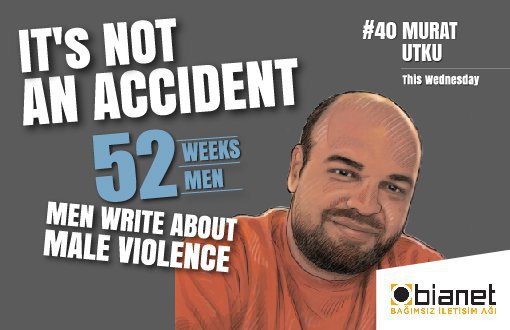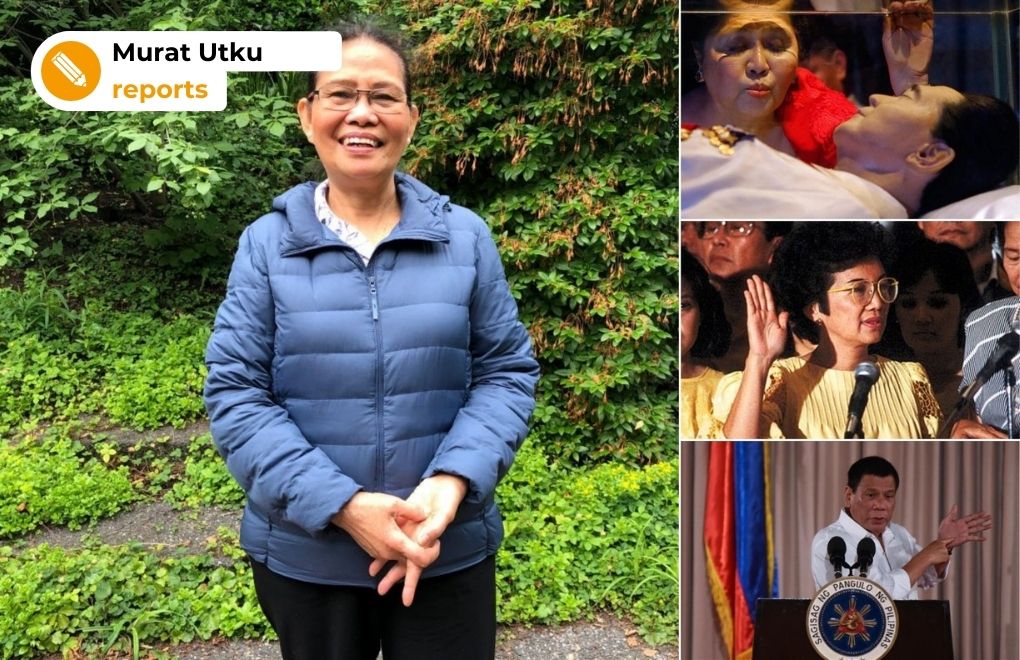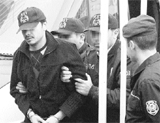Click to read the article in Turkish / Kurdish
There was a steep hill just at the end of the street. We started climbing together with my father in the summer heat.
My father was grumbling, "How on earth can the entrance to a hospital be like this?". He was right. The ascent was indeed steep and long. When we reached the hospital entrance, the duty officer said "Hello" and asked, "Are you here for the medical examinations?". I was about to turn 14. My moustache was newly sprouting. We went inside, submitted our documents, registered and went out into the garden of the hospital guided by a marine.
At least 50 young children my age were waiting in the garden. They had just hit puberty and their families had become anxious about their future.
The examinations lasted about 10 days. They examined each and every single part of our bodies, from the strand of our hair to our toenails. It was also during those days that I encountered homophobia for the first time in my life.
Because sure enough, they had also checked whether we were homosexual or not and this examination was done while we were all together. There is, of course, no need to describe the feeling of humiliation this caused.
"Marine" or "Martin"?
Thus began my life as a military student with the level of testosterone always running quite high.
From then on, the mechanism, which would drum into our heads the merits of being a "marine" and the cruxes of living like a man/soldier, had started to operate with all its solemnity and cruelty.
In this method—at least in those years—there was no place for women. In our preparatory year, we did not encounter a single woman, except for a first lieutenant, who was an English teacher.
As for the other male officers, they just looked the female officer in the eye and talked on and on about the superiority of men over women. In fact, one day, one of them had even said, "Sea is like a woman, it is treacherous, you need to be careful. That is why, they call the sea 'marine' (bahriye); otherwise, they would have called it 'martin' (bahri)". I remember we had laughed a lot at this adolescent boy joke, at least that day.
Can there be women on board?
In that period, being a soldier was a highly important profession. Three successive coup d'états staged every ten years (not counting the attempts) were behind us. Under the administration of soldiers, Turkey was going through a dark period created by the fascism of the September 12 coup.
Just as in every other field in the country, in the military as well, the issue of woman was one of those many subjects which was not deemed worth thinking about; woman was placed at the center of bad jokes, where scornfulness and machoism were intertwined, as in the example of "marine-martin".
Lest we forget, for centuries, sailors have been trying to persuade everyone that a woman on board brings bad luck. In other words, with the help of rumors men try to cover the fact that they are incapable of controlling themselves.
White uniform
As you know, marines wear white clothes in summer. It was rumored that women love those summer clothes of marines the most and marines were secretly proud of it.
As for the army and air force officers who wear uniforms in other colors, they used to make fun of the marines because of these white clothes by calling them "aunts-in-law". Marines used to get very angry about it.
On the one hand, tons of humiliating jokes were made about women; on the other hand, it was recommended that if a young woman is about to sit on a bench on the ferry, a white napkin that the marines carried in their pockets should be put on the bench so that her clothes would not get dirty. However, no doubt, chivalry was not that, which I would understand later on.
Adaptation to civilian life
The military school adventure that lasted about five years ended when I left the Military Academy. The process of adaptation to civilian live was not very hard for me.
Since I had spent most of my education life in an all-male boarding military school, coeducation gave me the opportunity to know and understand both myself and women.
One year after I left the school, women were also allowed to study not in the military high school but in the military academy. I am not a witness to that period. But I can surmise the hardships that the handful young women must have gone through among so many male military students.
Struggle against the imposed doctrine of machoism
It was yet another mistake inherited from the military school years to spend the period of adolescence and young adulthood with summer loves, and to think that I had figured out the woman-man relationships, and to approach life with these barren experiences.
We had all accumulated little love stories resembling hunting stories that make a mountain out of a molehill, just to be able to say something to our friends on the issue of women and relationships.
And, of course, none of these stories gave much of an idea about the mixed life "out there". That is why, it was not very easy to shake off those states of manhood that the military considered beyond reproach.
The doctrine of machoism was standardized by the founding ideology back in the 1920s and has unfortunately survived to this day almost completely intact through the principle of continuity; as someone who was subjected to this doctrine of machoism at a very young age and from the very top, would it ever be possible for me to look at the woman from a different perspective?
I tried to proceed by feeling my way and stumbling through it by trial and error.
Half-hearted libertarianism
Afterwards, there were times when I shouted at and quarreled with a woman colleague or my girlfriend in the middle of the street, or offended other women with various discourtesies.
At times, I also patronized women as if I was their teacher or something— that attitude called mansplaining—and crossed the line by intervening in her decisions regarding her body.
There are some behavior patterns that the male lineage cannot fix even after getting to know and understanding the struggle for women's rights. For instance, I remember I supported the libertarian attitudes regarding the veil issue only half-heartedly at the beginning, but afterwards felt sorry for my behavior.
Against sexism and homophobia...
At the end of all this process, I have been striving to see life from a different perspective by being against sexism and homophobia and siding with the struggle of feminism, I am still trying.
Because, as far as I can see in both myself and those around me, that macho inside the man does not leave him easily.
As if society, politics and, of course, state mentality do not otherize women enough, a meaningless anger against women is also being injected into men at home, at school, in the military and at every level of society.
And especially the men's inferiority complex caused by strong women is, unfortunately, not something that can be overcome easily.
It requires a self-struggle.
If we turn to me: I still have some way to go in terms of treating the house I live in and my partner in a more attentive manner. (MU/ŞA/APA/SD/IG)
Images: Kemal Gökhan Gürses









